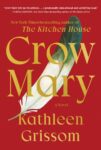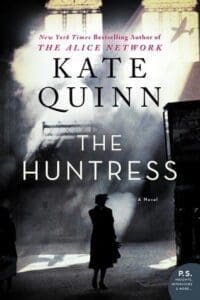Gateway to the Moon by Mary Morris– 352 pages
Book Blurb:
Entrada de la Luna is the sort of town that ambitious children try to leave behind them. Poor health, broken marriages, and poverty are the norm, and luck is unusual. So when Miguel Torres notices an advertisement for a position looking after two small boys a few towns over, he jumps at the opportunity. Rachel Rothstein is not the sort of parent Miguel expected to be working for, though. A frustrated artist, Rachel moved her family away from New York looking for a fresh start, but so far New Mexico has not solved any of the problems they brought with them. But Miguel genuinely loves the work and he finds many of the Rothstein family’s customs similar to ones he sees in his own community. Studded throughout this present-day narrative are historical vignettes following the ancestors of Entrada’s residents, beginning in fifteenth-century Spain and moving forward to the discovery of America, highlighting the torture, pursuit, and resistance of the Jewish people throughout history, leading to the founding of the enclave that Miguel now calls home
My Review: 4.5 stars
Gateway to the Moon is the book Mary Morris was meant to write. Her research is astounding. She takes the reader from the days of Columbus through the Spanish Inquisition that stretches into Portugal, while simultaneously telling a current day story in New Mexico. This book has a wide breadth while keeping the reader riveted to the story.
It’s 1992 and Miquel, our main protagonist, is an ever-inquisitive amateur astronomer. He lives in a small town comprised of Catholic residents that never question why they light candles are Friday nights or don’t eat pork. It’s something most of the families do with out question. Why? Because their parents, and their parents before them, lit candles on Friday nights and did not eat pork either. Meanwhile, the owner of the small gas station/market in the town, Entrada de la Luna, meaning Gateway to the moon, is busy tracing his roots. That’s where the second time line comes in, during the late 1400s.
These sections were astonishing to me. I learned so much more than the little I remembered from high school. I knew the ousting of the Jews during the inquisition was horrific. The Jews were tortured or killed unless they converted to Christianity. I also knew that many became crypto-Jews, meaning they secretly remained Jewish, while professing to be another religion. What I didn’t know was that Columbus had an interpreter, Luis de Torres, once known as Yosef ben Ha Levi Halvri–Joseph, Son of Levi the Hebrew, at his side through his expeditions. He was a crypto-Jew. It was men like him who passed down tradition but were too scared to share why; he was in fear of the repercussion that could happen to his family.
My only minor issue with the story was about Rachel’s family that felt off. I truly enjoyed Rachel and her constant quest for happiness. She had a lot of self-realization to work on, which felt relatable to the reader. Perhaps it was her husband that fell flat or how she dressed so scantily in front of Miquel. I’m still marinating on that. Either way, this book is an example of great storytelling while the reader has the opportunity to learn so very much.
Quotes I liked:
Luis de Torres is not his real name. It is Yosef ben Ha Levi Halvri – Joseph, Son of Levi, the Hebrew. But he became Luis de Torres earlier that year when the Alhambra Decree called for the expulsion or conversion of all the Muslims and Jews. He converted, as did Catalina. She has become a devout Catholic, but in secret he remains a Jew. He says his prayers, keeps the Sabbath. He will never eat pork. He cannot stay in Murcia long. He is certain that he will be discovered as have others like him.”



















